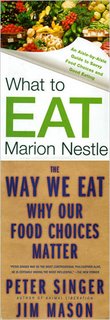
Had a pleasant flight back from Canada to the UK tonight. I managed to have a stimulating conversation with a female flight attendant. – No, not that kind of conversation... – Initially we tried in vain to figure out the time difference between St John’s (Canada) and London (UK), and eventually she managed to explain that ‘I’m a philosopher’, clearly suggesting that philosophers quite possibly can’t do maths all that well. I usually use that excuse when I fail to fix flat tyres and the like. In any case, inquiring whether she was serious (not about the maths claim but about her studies), I learned that she is reading philosophy at McGill University, and that she is working for that airline the name of which we shall not speak, during her semester breaks. She is currently fascinated with Gadamer’s work – Gadamer, of all philosophers. I think it is an encouraging sign if young people wanting to become philosophers, do not by default venture into the 'sexy' bits of philosophy.
Just finished reading the New York Times (June 27, 2006). It carries a review of Peter Singer’s most recent book. The ever reliable campaigner, he has co-authored a book looking at the ethical implications of the choices we make with regard to food stuffs we consume. He argues that we should not eat meat and other animal products generated by causing animal suffering, and suggests that we ought to consume ideally organic produce.
Now, here is an interesting challenge: Each time I go to my local supermarket, invariably I end up having to choose between organic OR fair-trade produce. So, it seems (at least on Glaswegian supermarket choices) I either support the environment or the developing world. I tend to settle usually for the fair-trade bananas instead of the organic ones. I am quite certain the supermarket managers deliberately set us customers up for these sort of choices in order to train our ethical critical decision-making skills. It has to be one big conspiracy of ethics teachers and supermarket chains. - Why else, I wonder, would a chain with massive purchasing power buy either fair-trade or organic produce instead of requiring its buyers to purchase produce that satisfies both requirements. You know if you buy organic, the developing world originating produce won’t have been bought at decent prices from the producers. Equally, you know that the fair-trade stuff isn’t truly environmentally friendly.
A Kingston (Canada) neighbourhood festival I bumped into proposed that we ought to buy only produce from local farmers. It all seemed very politically correct, and certainly makes sense in environmental terms (eg the produce is fresh, it doesn’t have to be shipped around the globe etc), but I wonder what farmers in Puerto Rico, Mexico and places like that will make of this kind of protectionism, and how they would survive if their products would no longer be bought by us in … yes, our much maligned local supermarkets?